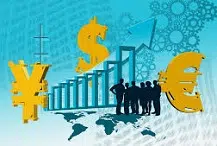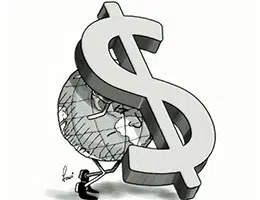 Neoliberalism is an economic and political doctrine that aims to minimize the role of the State . This theory arose from the premises of classical liberalism and became popular in the late 1970s .
Neoliberalism is an economic and political doctrine that aims to minimize the role of the State . This theory arose from the premises of classical liberalism and became popular in the late 1970s .
The Chicago School of Economics was key in the development of neoliberalism. Milton Friedman and George Stigler are considered two of the main thinkers who promoted these ideas , later transmitted to the so-called Chicago Boys (graduates of the University of Chicago ).
From the essays and academic reflections, neoliberalism became reality through the policies applied by leaders such as the English Margaret Thatcher and the American Ronald Reagan . Their results received both applause and criticism, depending on the position taken.
It can be said, at a general level, that neoliberalism is based on free trade and the reduction of public spending . Its central premise is that the State should intervene as little as possible in the economy and society in general, delegating many of its functions to the private sector.
By reducing the money supply and increasing interest rates, neoliberalism aims to avoid devaluations and market cycles. On the other hand, it tends to eliminate taxes on profits, income and production and tax consumption.
Trade deregulation , labor flexibility and the privatization of public companies are other strategies proposed by neoliberalism to generate wealth and well-being. For its detractors, however, this type of measure favors the concentration of wealth in the hands of a minority and violates the rights of the majority.
Throughout history, people from various backgrounds and political ideologies have fiercely criticized neoliberalism, and this includes supporters of the right and the left, members of academia, and activists. The American economist Joseph Eugene Stiglitz , for example, who also works as a university professor, defines neoliberalism as "market fundamentalism" because he considers it an economic ideology that allows a minority to achieve its interests at the cost of avoiding controls and passing ignore the foundations of democracy .
 This term is used by people from opposite poles, both those who defend capitalism and those who repudiate it; In other words, we can mention protectionists, post-Keynesians, communists and socialists, among others. For them, its meaning is general but refers to a position opposed to the limitation of markets or the reduction of the role of the State in the economy.
This term is used by people from opposite poles, both those who defend capitalism and those who repudiate it; In other words, we can mention protectionists, post-Keynesians, communists and socialists, among others. For them, its meaning is general but refers to a position opposed to the limitation of markets or the reduction of the role of the State in the economy.
The term neoliberalism has also been used pejoratively, to disqualify those people who support a market economy , giving it a meaning equivalent to " corporatism ." For some specialists, this concept can be understood as a heterodox liberalism, which comes from the bourgeoisie and belongs to the so-called welfare state , which was implemented after 1945 in the capitalist countries that managed to develop the most.
Neoliberalism is often related to two other ideologies: social democracy and Christian democracy . The first has the objective of using gradualist and reformist measures to achieve democratic socialism . The second, on the other hand, is a current originating in the foundations of Catholicism, the social ethics of Protestantism and the ideas of Emmanuel Mounier and Jacques Maritain .
For protectionists, neoliberalism considerably increases the impact of crises of confidence and they consider it the reason why several financial crises have reached an almost global level between 1990 and 2008, where we find examples such as the Tequila Effect and the Asian Crisis. , from 1994 and 1997, respectively.
